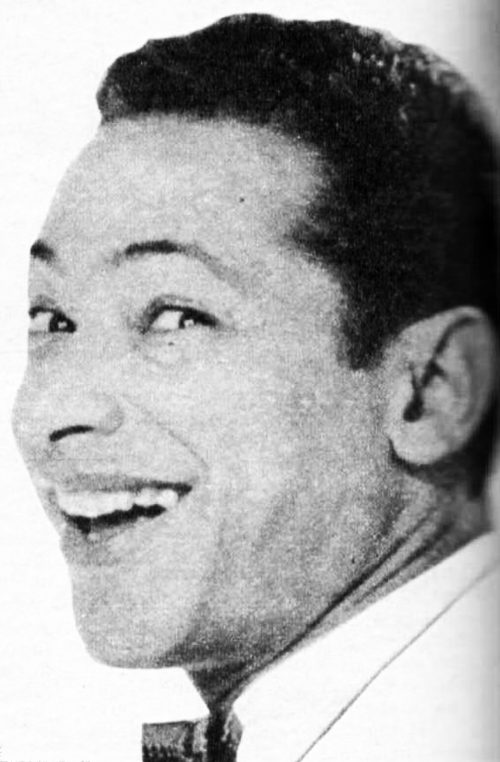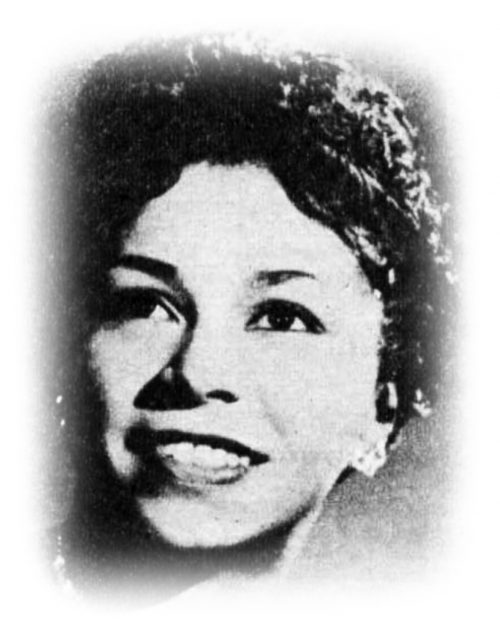The Continent comes to Chelsea
Chelsea at Nine goes French


HENRI SALVADOR’S formula for show business success is lots of sleep. “I like nine hours sleep a night plus another three hours in which to wake up properly,” he said.
Stocky, dynamic Henri is one of two French acts giving a Continental flavour to Granada’s Chelsea at Nine on Thursday. He has been a top-liner on the continent for more than 10 years, and a star in South America before that.
It is only in the last couple of years that he has become known in this country but the Queen saw him in Paris a long time ago.

“When she was Princess Elizabeth,” said Henri, “she came to the Carrere club. I ran the band and was the cabaret. She must have enjoyed herself. She was to stay half an hour. She left after five hours.”
Everything Henri does is polished. He sings romantically or skittishly, dances expertly, and has few equals as a mime comedian (usually with a background of noises he has made and recorded beforehand).
Henri, aged 42, is a native of the French West Indies [French Guiana – Ed]. When he was three, his parents moved to Paris. He spent his childhood in a poor neighbourhood. Often the family moved — suddenly. He made money at an early age, shining shoes or selling newspapers (“usually second hand ones”).
At school he could not concentrate. He decided to learn to play an instrument and become an entertainer.
“I liked drums, but they were too bulky to carry round. Clarinet tickled my lips. Trumpet bruised them. Guitar. I fell in love with the shape — like a woman! Light to carry, too.
“Soon I found I could play the guitar well, and got a job with Ray Ventura, a leading French orchestra leader.
“I used to fool around at rehearsals and make everyone laugh. Some of the boys suggested I become a comedian. I worked up some “business” and Ray Ventura let me do it when we went to South America on tour.
“I became a star there. I left the band,” he told me in his breathless, enthusiastic way, using good English, which he says he learnt phonetically.
“When I got back to Paris, I went to a music hall owner and told him I was a star in South America. He said so what. I said I could become a star in Paris. He shrugged. I asked him for a chance — only 30 minutes to close the first half. He laughed. But in the end he gave me my chance.
“I kept my promise. I became a star overnight. That was in 1946. Since then, my job is to stay a star. That is why I work 12 hours a day, rehearsing and thinking up new material.” Unusual sounds inspire his songs and comedy. He memorises them easily (“That’s how I learn languages”).
His noisy diner sketch was a product of keeping his ears open in a restaurant, and imitating what he heard on a sound recorder.
English audiences have thrilled him. “So quick, so complimentary. They feel like flying over London without an aeroplane.”
When he can sneak away from business for an hour or two, he likes fly fishing. “I am a natural lazy man, coming from the Indies,” he admits. “Sitting by a river is fine with me. If I catch a trout, I’ll be so happy. If not, maybe I catch a tan.”
Actually, Henri is not lazy as he tries to make out. He burns up a great deal of energy when he is entertaining and replaces it with plenty of sleep and by sucking glucose and sugar.
“I wouldn’t be able to get on a stage without a sugar lump,” he told me.

Also from France come Les Ballets Modernes de Paris with one of their hits, Dans la Rue. It is the tale of a night in a big city, complete with a street-corner fight applauded by “shady ladies” and high-spirited night clubgoers returning home.
The ballet is run by a married French couple, Francoise and Dominique Dupuy. Last year they triumphed at the Edinburgh Festival with the ballet The Seventh Sacrament.
Francoise says: “That was a serious ballet but this time we will give a lighter show.” She adds: “I am very happy to go to London, since I like the town and I know the people appreciate good dancing. Also, I want to buy a lot of cardigans and cashmeres. And have a good time.”
The seven dancers in the troupe come from all over the world. A new recruit is an 18-year-old Swiss, small and shapely Marie Aubert. From Germany there is Karin Waehner; from Uruguay, Paul Darnot, and from France, Michele Andren and Roger Ribes.
Their choreographer is British — Deryk Mendel who worked in English ballet before the war and afterwards settled in Paris with the Champs Elysées Ballet before joining them.
Says Mendel: “Our technique will be new to British audiences, it may shake a few old people who are not used to modern dancing.”
Music for Dans la Rue comes from America composed by jazz genius Duke Ellington. It is part of his A Drum is a Woman which he recorded, and presented on US television, in 1957. One singer was Margaret Tynes, and she is coming to Chelsea at Nine next week to recreate her part.
Margaret Tynes has had a distinguished career both as Broadway show singer and serious operatic soprano. She was in more than 200 Broadway performances of Finian’s Rainbow and was leading lady to Harry Belafonte in another show, Sing, Man, Sing. She has sung in Moscow in a show presented by Ed Sullivan, played Lady Macbeth in Verdi’s Macbeth with the Montreal Opera Company in Canada, worked for the NBC TV Opera Company, and had five and a half years with the New York City Centre Opera Company.
Two other Americans, both comedians, also appear in Chelsea at Nine: Orson Bean (a return engagement) and Jack Wakefield who was born in Brooklyn, New York, but who made his name in Canada before returning to triumph in New York
Talking of Canada, the show will be compered by Canada’s Bernard Braden.








